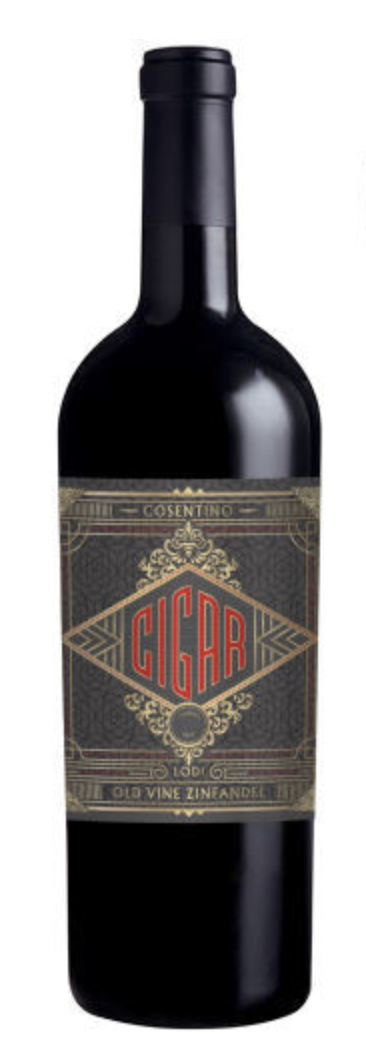I probably don’t write about sustainability enough in this column, but Your West Coast Oenophile has designed Sostevinobile to incorporate sustainable principles and practices in every aspect of our business model, including the production of all the West Coast wines that will be part of our program. After all, I did coin the name from a portmanteau of sostenere (to sustain) + vino & nobile. So I was initially quite pleased to read the installment Rise of ethical consumerism causing an increase in awareness of the alternative wine category in yesterday’s WineBusiness.com, having been admonished by numerous potential investors that such considerations, while admirable, would have no bearing on the potential success of my business model.
Previously, I had not been familiar with Wine Intelligence, the British-based analysts whose report entitled Global SOLA formed the basis of this article. So far, so good, until I discovered that this acronym stood for Sustainable, Organic & Lower Alcohol wine. At the risk of apostasy, how does that equate? What are the environmental benefits of lower alcohol wine?
I am not against producing more moderate wines—in a quest for improved flavor or greater pairing with food. This is a stylistic or æsthetic consideration on the winemaker’s part. Outside of that, however, the impetus toward lower alcohol wine is a thinly-veiled banner for the neo-Prohibitionists who are eroding the marketplace for wine worldwide. As it becomes more apparent that recent studies alleging that there are no benefits to alcohol consumption are skewed, if not outright biased, it behooves these denizens to align themselves with ethical advocacies and movements that are popular with the mainstream, like environmentalism and climate control. But this affiliation is wholly misplaced.
 On a parallel note, I have long advocated the separation of alcohol from the regulatory authority governing the other so-called “sin taxes.” The Bureau of Alcohol, Tobacco, and Firearms (BATF), now known as TTB, is an anomaly. No one can rationally argue that there are health benefits that mitigate the dangers of smoking, and even an organization as nefarious as the NRA would not try to portray as salubrious. Wine, with its resveratrol, is the diametric opposite of these other two “vices,” and should never have been lumped in the same category.
On a parallel note, I have long advocated the separation of alcohol from the regulatory authority governing the other so-called “sin taxes.” The Bureau of Alcohol, Tobacco, and Firearms (BATF), now known as TTB, is an anomaly. No one can rationally argue that there are health benefits that mitigate the dangers of smoking, and even an organization as nefarious as the NRA would not try to portray as salubrious. Wine, with its resveratrol, is the diametric opposite of these other two “vices,” and should never have been lumped in the same category.
For years, I have been lobbying against any affiliation, implied or direct, between alcohol and tobacco, particularly labels and events that seek to marry the alleged pleasures of cigar smoking to a fine port or brandy or scotch. And don’t even get me started about Altria’s proprietorship of Château Ste. Michelle!
But know this isn’t some idle slacktivist rant. Sostevinobile will be utterly inflexible in its complete prohibition of tobacco. We will not employ smokers—not merely because of the added health insurance burden but to ensure our customers enjoy their visit without having to endure even a hint of tobacco stench; nonetheless, we will gladly fund tobacco cessation programs should otherwise qualified personnel wish to join our team. Our projected 8,300 sq. ft. rooftop deck will be completely smoke-free, which includes banning the use of the insidious Juul and other vaping devices. Similarly, our private Club SVN lounge will neither permit any form of tobacco nor will its concierge accommodate cigar orders or similar requests from our members. This policy is, of course, primarily our own æsthetic consideration, yet, unlike SOLA, our standards seek to recognize what truly aligns with the ethics of environmentalism.
The wine industry has long been recognized as being in the forefront of environmental policy and innovation, but this is not its only vanguard. Last week, I attended a wonderful tasting organized by One Market Wine Director Tonya Pitts. Women in Wine was a benefit for La Cocina, a not-for-profit incubator in San Francisco for women seeking to create their own culinary startup. The event featured a roster of over 25 distinguished California wineries quarterbacked by women winemakers, and while it would be somewhat of a hyperbole to describe this lineup as a veritable Who’s Who of female œnologists here, it definitely compared to an NFC ProBowl lineup: Merry Edwards, Bouchaine, St. Helena Winery, Donkey and Goat, Ernest, Trombetta, Far Niente/Nickel & Nickel, Martha Stoumen, Theopolis, Zaca Mesa, Artesa, Shared Note/Cattleya, Conduit, Tessier, Bucher, Notre Vin/Alienor, La Sirena, McBride Sisters, Wait-Mast, Neely, Côte West, Stonestreet, Duckhorn/Golden Eye, Ghost Block, and Mojave.
At this time, I am refraining from my observations on the individual wines I tasted, in part because lacking a printed program compelled me to transcribe my comments on Notepad on my iPhone, a laborious process that kept me from covering everyone who participated in this event. But I will make the observation that none of these wines semed notably feminine in character—or masculine, for that matter. They were simply strong, routinely excellent vintages, wines that compelled you to focus on their structure and balance and flavor, the expression of the varietal and the distinction of the terroir.
And that is testimony to yet another facet of the wine industry that puts it in the forefront: women here have attained a level of parity with men that makes their craft indistinguishable by gender. Full equality may not be there yet in terms of numbers or wages, but in this regard, the industry has arrived ahead of the rest.